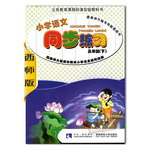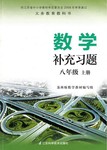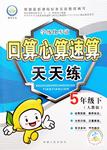
Kathy started at my nursery school at the age of three. She settled into the group easily, and would be first on the slide and highest up the climbing frame. She could put on her coat without help and not only fasten her own buttons but other children’s too.
She was a lovely child but unfortunately a scratcher. If anyone upset her or stood in her way, her right hand would flash out fast and scratch down the face of her playmates. Children twice her age would fly in fear from her.
This must have been very rewarding for Kathy but obviously it had to be stopped. All the usual ways failed and then I remembered an account by G Atkinson Highfield School, of how fights in the playground had been stopped. No punishment had been given, but the attacker had been ignored and the victims rewarded. So I decided to try out on Kathy.
With a pocketful of Smarties I followed Kathy around. She was so quick that it was impossible to prevent her scratching, but I was dertermined to stay within arm’s length all afternoon.
All was peaceful but then I saw Kathy’s hand moved and heard the scream. Gently I gathered up the little hurt one in my arms and said “Nice, nice sweetie” and then looked puzzled when she got nothing.
Soon came another scream, this time from John. While holding him in my arms, I said, “Look, Kathy, a nice Smartie for John” and put it into John’s mouth.
A smile of understanding flashed across Kathy’s face. Minutes later, she came to me and said loudly, “Give me a Smartie! I have hurt my finger!”
“No,” I replied, “you’ll get it if someone hurts you.”
On purpose, she turned and scratched a nearby boy, Tom, and waited quietly while I mothered and rewarded him, then she walked away.
She has never scratched a child since.
Parents who find older children bullying younger brothers and sisters might do well to replace shouting and punishment by rewarding and giving more attention to the injured ones. It’s certainly much easier and more effective.
From the passage, we know that Kathy is _______.
A. sensitive but slow
B. smart but a bit rude
C. independent but selfish
D. quick but sort of passive.
Kathy scratched Tom because _______.
A. she was angry at Tom, who was in her way
B. she wanted to get a Smartie from the teacher
C. she was in the habit of scratching other children
D. she wanted to know if the teacher meant what she had said
According to the passage, the underlined word “bullying” is closest in meaning to“_______”.
A. helping
B. punishing
C. hurting
D. protecting
The writer of this passage aims to recommend an approach to _______.
A. rewarding children’s good behavior
B correcting children’s bad behavior
C. punishing badly-behaved children
D. praising well-behaved children
 同步练习河南大学出版社系列答案
同步练习河南大学出版社系列答案 同步练习西南大学出版社系列答案
同步练习西南大学出版社系列答案 补充习题江苏系列答案
补充习题江苏系列答案 学练快车道口算心算速算天天练系列答案
学练快车道口算心算速算天天练系列答案科目:高中英语 来源:湖南省长郡中学2009届高三第五次月考英语试题牛津版 题型:050
| |||||||||||||||||||||||||||||||||||||||||||||||||||||||||||||||||||||||||
查看答案和解析>>
湖北省互联网违法和不良信息举报平台 | 网上有害信息举报专区 | 电信诈骗举报专区 | 涉历史虚无主义有害信息举报专区 | 涉企侵权举报专区
违法和不良信息举报电话:027-86699610 举报邮箱:58377363@163.com